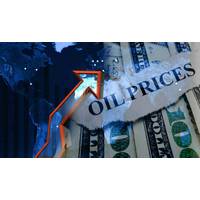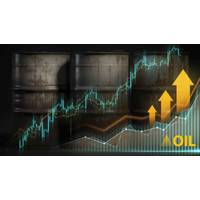EU Leaders Seek Climate Deal, But Divided Over Costs
- New policy to replace existing 2020 goals
- EU to set tone for global climate change talks
- Poland leads objections, but is not alone
European leaders aim to agree a new decade of energy policy to cut climate-warming gas emissions to 2030 at an EU summit on Thursday, but sharp differences over sharing the costs mean that securing a deal is likely to prove difficult.
The 28 member states want to set the pace for a global pact to be hammered out in Paris next year with industrial powers from Asia, North America and the rest of the world.
That pact would aim to improve on two decades of stuttering cooperation and rein in carbon dioxide emissions blamed for a disruptive rise in temperatures.
There is broad acceptance for an overall EU goal of cutting carbon emissions from homes, power plants, cars, planes, farms and other sources by 40 percent by 2030, compared with the global benchmark year of 1990.
Conflict between Ukraine and Russia, the EU's biggest energy supplier, has also focused the EU on reducing its reliance on imported fossil fuels by increasing use of renewable energy and using domestic sources more wisely.
Arguments about helping poorer eastern states or preferring nuclear over wind or solar power may drag the negotiations through the night into Friday, diplomats said, though they still predicted a deal could be achieved.
As host of next year's United Nations summit to negotiate a global climate deal, French President Francois Hollande said Europe had to take the lead.
"If there isn't an agreement in Brussels among the countries that are furthest ahead on this issue, how are we going to convince the Chinese or the Americans or the poorer countries?" Hollande said on his arrival for the Brussels talks.
EU policymakers have sought to strike a balance between big business, which claims that more ambitious targets will drive away industry, and more innovative companies and green campaigners who say the outline goals lack ambition and will nip Europe's burgeoning renewable technologies in the bud.
For instance, ArcelorMittal has warned that the EU plans would make European steelmaking uncompetitive. On the other side of the fence are the likes of Acciona and Unilever. The duo have issued a joint call for an ambitious set of 2030 goals to encourage EU investment.
Progress so far
The plan is to build on an existing set of green policy goals to 2020, which have greatly increased the amount of renewable energy used across the European Union and cut overall energy use through measures such as better building insulation and more fuel-efficient vehicles.
At present, EU carbon emissions are nearly 20 percent below 1990 levels, helped by the collapse of polluting industries in eastern states after the fall of communism 25 years ago.
After six years of economic crisis, many states say their national budgets will struggle to cover the cost of more ambitious targets. And leaders fret about the reaction of voters to a range of related effects, from a loss of jobs in industry to new EU regulations limiting the power of domestic appliances.
Coal-dependent Poland - the new Prime Minister of which, Ewa Kopacz, is attending her first EU summit - fears the political fallout from policy that could shut mines a year before an election.
British counterpart David Cameron, pushing for minimal restrictions on how to meet the target, wants to nuclear options kept open and fears that red tape will fuel Eurosceptic demands to quit the EU.
Portugal and Spain, meanwhile, are keen to export energy and are pressing hard for stricter targets that would push France to accept more power connections being built to link Iberia across the Pyrenees.
The European Commission, the EU executive, has laid out three 2030 targets: as well as cutting emissions by 40 percent from 1990, they propose green fuel should provide at least 27 percent of energy with energy efficiency improved to 30 percent.
Efficiency Goal
Britain has led opposition to a strong efficiency goal and an updated document, seen by Reuters, on the state of negotiations put forward an energy savings target of 27 percent and underlined that it would apply to the EU as a whole.
Any deal agreed this week will commit governments in principle for years to come, but detailed legislation will only be worked out later and could take account of how far other global powers follow suit.
Other issues on the agenda for Thursday and Friday include how to help African countries to fight Ebola and appointment of a coordinator for EU efforts against the disease.
The EU will also press Russia to do more to defuse the conflict in Ukraine as the Kiev government holds a general election this weekend.
The bloc is unlikely to make changes to trade sanctions against Moscow but could discuss Kiev's request for new loans as the EU tries to broker a deal to restore supplies of Russian gas to Ukraine before winter sets in.
(By Barbara Lewis, Additional reporting by Julia Fioretti and Adrian Croft,; Editing by Alastair Macdonald, David Evans and David Goodman)






